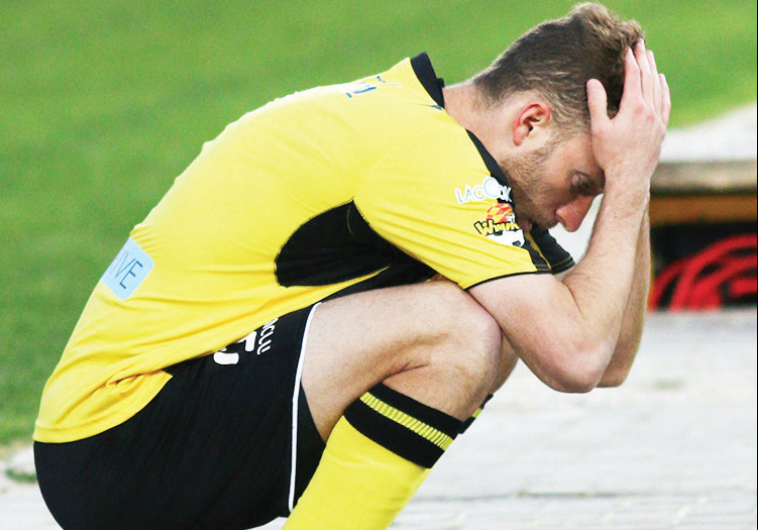Sinai Says: Maccabi Netanya’s incredible collapse tied to financial frailties
With debts estimated at NIS 15 million and no realistic solution to settle them, Netanya is in danger of going into administration.
 ISRAELI STRIKER Yuval Avidor strikes a pose that has come to epitomize Maccabi Netanya (photo credit: ADI AVISHAI)
ISRAELI STRIKER Yuval Avidor strikes a pose that has come to epitomize Maccabi Netanya (photo credit: ADI AVISHAI)